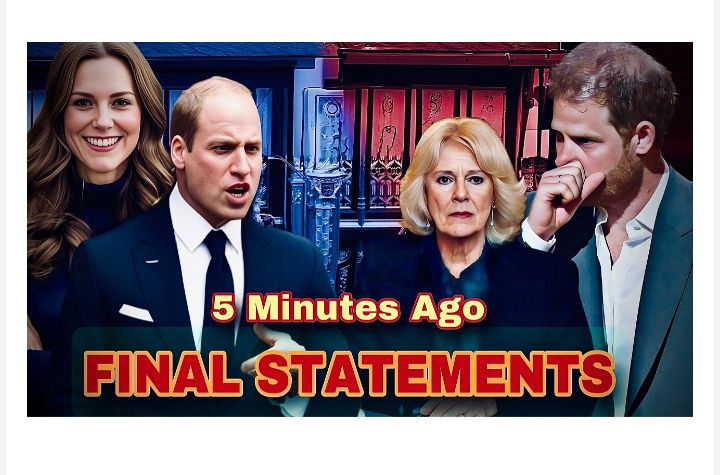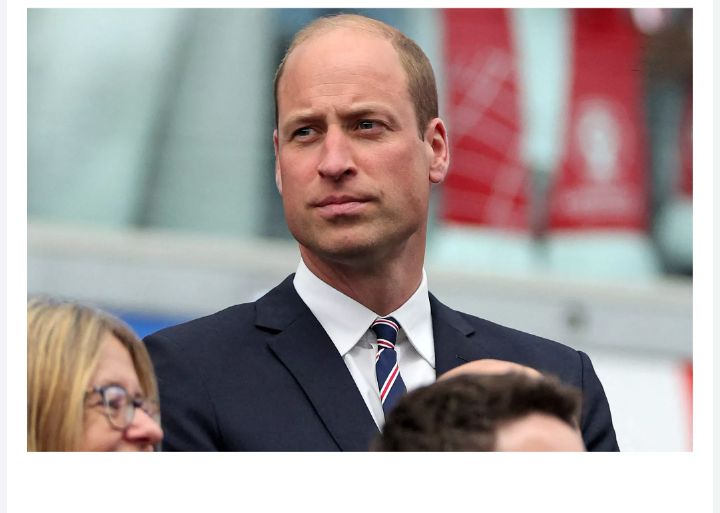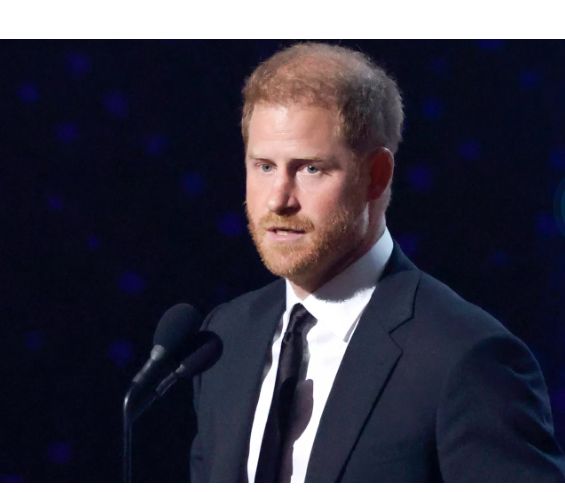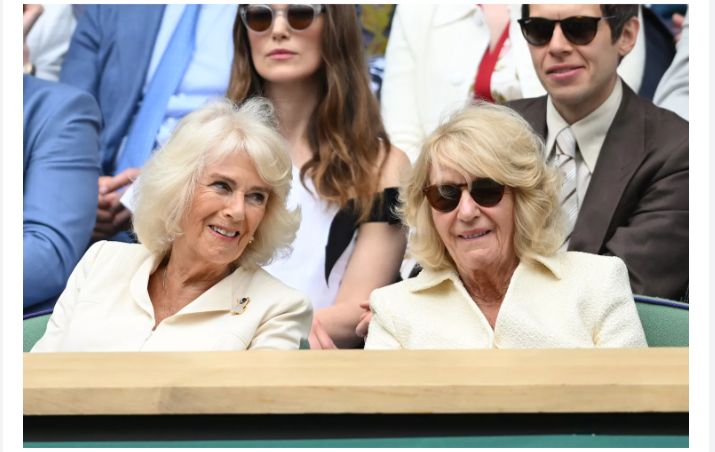CELEBRITIES
Prince William, with the permission of King Charles, has made a daring decision regarding the monarchy’s concerns over Queen Camilla’s son and Prince Harry’s involvement. According to an insider source, this choice has the potential to cause Queen Camilla and Prince Harry to …. Full story below 👇😱

Prince William, with the permission of King Charles, has made a daring decision regarding the monarchy’s concerns over Queen Camilla’s son and Prince Harry’s involvement. According to an insider source, this choice has the potential to cause Queen Camilla and Prince Harry to get emotional. Princess Catherine will resume her royal duties in early August after her successful recovery from cancer, which included undergoing six months of chemotherapy treatment.
In the middle of a challenging year, the British royal family is now encountering a crucial turning point in 2024. The monarchy is facing unprecedented problems described by insiders as the most difficult experience so far. The notable absence of three key individuals who once played major roles among the working royals has resulted in a significant void. The scarcity of currently engaged individuals from the royal lineage poses a significant obstacle to King Charles’s reign. According to insider sources, this circumstance has prompted Prince William to consider taking the throne sooner than initially planned.
The current status of employed individuals from royal lineages is an interesting topic. The current cohort of active royals is dwindling, and their advanced ages underscore the pressing urgency of the situation. Here’s a summary of the main persons and their ages:
King Charles is 75 years old
Queen Camilla is 76 years old
Prince William, the Prince of Wales, is 42 years old
Catherine, the Princess of Wales, is 42 years old
Princess Anne is 74 years old
Prince Edward, the Duke of Edinburgh, is 60 years old
Sophie, Duchess of Edinburgh, is 59 years old
Due to the advanced age of the present squad, there is an increasing need for younger, more dynamic, and inventive members. Catherine, the Princess of Wales, who has lately fought against cancer, is now confronting health difficulties that worsen the problem. Nonetheless, we expect her to fully recover and resume her responsibilities in August.
Prince William is advocating for a contemporary kind of monarchy. Long recognized as the heir to the British monarchy, Prince William is now making efforts to modernize and reform the institution. According to recent developments, experts predict the Prince of Wales will likely adopt a more contemporary and forward-thinking approach to his reign, distinguishing him from his father, King Charles III. Prince William left a lasting impact at a public meeting by highlighting the significance of mental well-being, environmental conservation, and the monarchy’s need to establish a deeper rapport with the younger generation. Experts see this change in focus as a deliberate maneuver to guarantee the monarchy’s continued significance in an ever-evolving world.
Discussion about financial issues and making challenging decisions before the upcoming rise of Prince William involves King Charles and Princess Catherine. The royal family has engaged in extensive discussions on their financial affairs. Despite the rise in profits this year, there is still controversy about the expenditures related to sustaining the royal family. One of the most significant decisions was the redistribution of duties formerly undertaken by Prince Harry. King Charles and Prince William have chosen to delegate the responsibility of overseeing the Invictus Games to Mike Tindall, a former rugby player and the spouse of Zara Tindall, who is Princess Anne’s daughter. Mike Tindall’s expertise in sports and his active participation in public service make him a highly qualified candidate for this significant role.
Furthermore, in an effort to save costs, King Charles has decided to withdraw some duties from Queen Camilla. Queen Camilla is very troubled by this choice. According to reliable sources, the British royal family has taken another consequential and sincere choice in the middle of an extremely tumultuous year. King Charles III has decided to end the monetary support given to Tom Parker Bowles, the son of Queen Camilla. This step is part of a broader strategy aimed at reducing the overall expenses of the monarchy. This choice, while causing sorrow to Queen Camilla, highlights the need for fiscal discipline during these difficult times.
Tom Parker Bowles, the son of Queen Camilla and Andrew Parker Bowles, was born as a result of their first marriage. Tom, born on December 18, 1974, is a highly esteemed gourmet author and critic who has authored multiple culinary publications and made frequent appearances on television. Despite his renowned public image, Tom has often remained outside of the central cohort of actively engaged members of the royal family, devoting his endeavors to his culinary vocation. The cessation of financial aid for Tom Parker Bowles is part of a larger effort to streamline the royal family’s expenditures. Despite the rise in profits this year, the expenses related to upholding the monarchy have consistently been a point of contention. The Sovereign Grant, which funds the formal duties of the royal family, has received criticism mostly because of concerns about budgetary responsibility. Exclusive sources reveal that this choice has significantly impacted Queen Camilla. Throughout her life, she has consistently shown steadfast support to her children, and the decision to stop providing financial aid has been seen as a very personal failure. However, this activity has happened before; the royal household has a history of making difficult decisions to ensure its long-term sustainability. This action is part of a broader strategy to reduce the financial burden on the monarchy and focus resources on its core members. King Charles intends to enhance the effectiveness and modernity of the royal household by reallocating financial resources and responsibilities.
Prince William’s vision for a fortified and contemporary monarchy aligns with this choice. Prince William is undergoing leadership training, and King Charles is progressively entrusting further responsibilities to Prince William in anticipation of his eventual ascension to the throne. Experts view this transitional stage as a crucial step to guarantee a seamless and uninterrupted succession. Prince William has expressed apprehensions about taking on more duties, especially considering his wife’s recent health difficulties. He has emphasized the need to prioritize his family at this challenging moment. Despite these concerns, private sources reveal that the next year will be crucial for Prince William as he prepares to take on the full responsibilities of a potential king. The anticipated recovery and return of Princess Catherine in August will also have a substantial influence on this transition.
Princess Catherine has announced her involvement in many new projects, demonstrating her readiness to resume her royal duties. Her unwavering dedication to early childhood development, a topic she has always been passionate about, is one of the most eagerly anticipated endeavors. Prince William expects her presence to provide crucial stability and support during this transitional era. The British royal family is undeniably facing one of its most challenging periods. Due to the absence of significant figures and the need for a more modern approach, it is more likely that Prince William will ascend to the throne sooner to preserve the continued significance and durability of the monarchy. It is crucial for King Charles and Prince William to cooperate and make essential arrangements for this transitional phase. Princess Catherine’s involvement and reassignment of responsibilities within the royal household will be critical in achieving this goal. The next few months will be a pivotal period for the royal family, and the international community will closely monitor their management of these unprecedented challenges.














